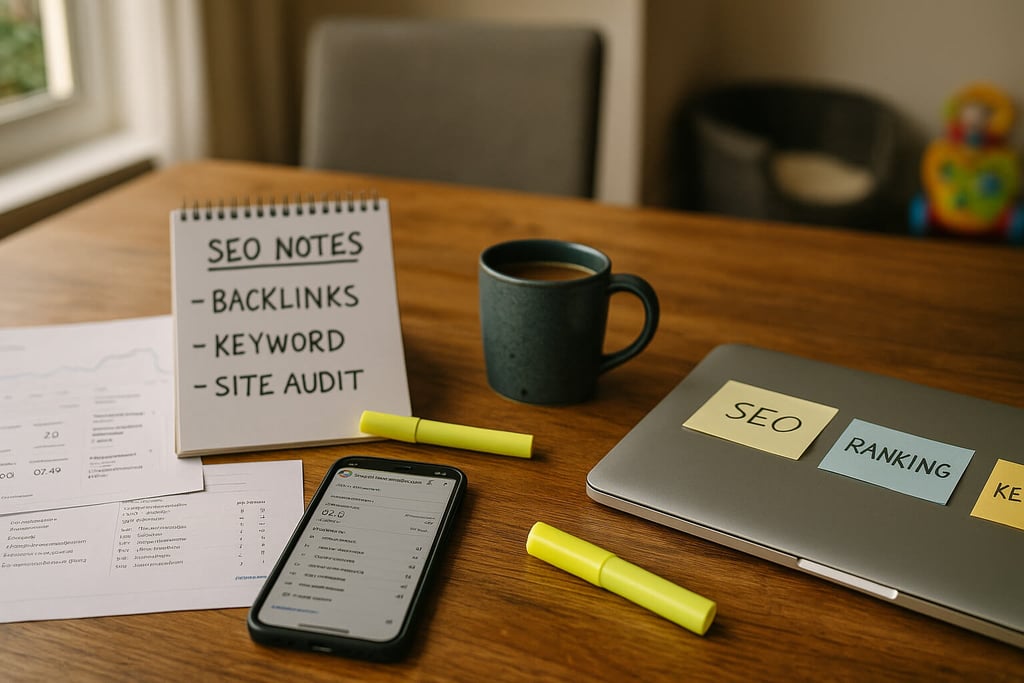SEOJet Flight Blog
Improve SEO Rankings: Can you really do SEO Without Paying?
Improve SEO Rankings: Can you really do SEO Without Paying? Discover cheap SEO tips to boost your rankings! Optimise your website & improve SEO performance without paying for expensive SEO plans.
SEO STRATEGY
Ardene Stoneman
5/31/20255 min read


Can You Really Improve SEO Without Paying? The Truth About Cheap SEO
Many businesses ask the same question: “Can I improve my SEO without paying?” It sounds tempting - getting higher rankings without spending money.
But the reality is more complex. There are cheap tasks you can do yourself, but once you move past the basics, real results need time, skill, and budget.
This article explains why proper SEO isn’t cheap and helps you understand where to spend, what’s worth doing in-house, and how to avoid wasting effort.
Outline
What Does “Cheap SEO” Actually Mean?
Is Any SEO Work Really Free?
Why On-Page SEO Is a Good Place to Start
Can You Improve SEO Without Backlinks?
What Role Do Backlinks Play in Ranking?
Is Local SEO Really That Cheap?
How Technical SEO Affects Your Search Rankings
What Can You Do Without Spending a Fortune?
Why Outreach and Link Building Aren’t Cheap
When Does It Make Sense to Pay for SEO?
1. What Does “Cheap SEO” Actually Mean?
People often search for cheap SEO expecting to improve their rankings in search engine results without much effort or cost. But in most cases, cheap SEO is limited to surface-level tasks.
You can:
Optimise your site using free tools like Google Search Console.
Make quick updates to tags, meta descriptions, or page content.
Use keyword research tools like Google Keyword Planner to identify target keywords.
But these don’t cover the full scope of effective SEO. While they might help improve your website’s visibility a bit, they won’t drive significant traffic to your website on their own.
To climb higher in the search engine ranking, SEO efforts need to go deeper. That’s where the cost comes in.
2. Is Any SEO Work Really Free?
There are a few things you can do without spending money directly. They rely on your own time and skills:
Write and publish content on your website that’s useful and relevant.
Optimise title tags and meta descriptions on key pages.
Submit your site to Google Search Console and monitor for errors.
These fall under basic on-page SEO. If you understand SEO tactics and can use free tools effectively, you can improve your website’s SEO in small ways.
But time is still a cost - especially for business owners.
And without the right strategy, you could spend hours making changes that don’t actually help Google understand your website or improve your rankings.
3. Why On-Page SEO Is a Good Place to Start
If you’re trying to improve your SEO on a budget, on-page work is your best first step.
Here’s what to focus on:
Page titles and meta descriptions that use your target keywords.
Headings that match search intent.
Content that answers real questions and helps Google see the topic clearly.
Internal linking between related pages to strengthen relevance.
Tools like Google Keyword Planner and Google Trends can help you decide which phrases matter.
Fixing technical SEO issues like slow load times, broken links, or incorrect tags can also improve your website’s SEO without paying for services - if you know what to look for.
4. Can You Improve SEO Without Backlinks?
Without backlinks, you can still make technical and on-page improvements - but you’ll hit a wall. Google uses backlinks to judge authority. Without them, your website might stay buried under more trusted competitors.
Think of SEO as having three parts:
Technical SEO: structure, speed, crawlability.
On-page SEO: content, headings, tags, keyword use.
Off-page SEO: mainly backlinks.
You can fix the first two with your time and knowledge. The third usually requires outside input - through outreach or relationship building. That’s the expensive bit.
5. What Role Do Backlinks Play in Ranking?
Backlinks aren’t optional if you want top spots on Google. They’re a key signal of trust and authority.
Let’s say you’ve written great content and your technical setup is strong. Without quality links to your website, Google may still not rank it highly - especially for competitive keywords.
Link building involves:
Outreach to relevant websites and blogs.
Creating content worth linking to.
Tracking mentions and asking for a backlink.
None of this is fast. And if you hire someone to do it properly, you’ll see why cheap SEO doesn’t exist here. Quality backlinks cost time, content, and relationships.
6. Is Local SEO Really That Cheap?
Local SEO strategies can look simple, but they still take work. You can:
Set up your Google Business Profile.
Add your site to free directories.
Collect customer reviews.
Make location pages for each service area.
All of these can help improve your rankings in Google search results for local queries. They’re low-cost but need attention.
Even here, you’ll hit limits. Competing locally might still require backlinks, well-written content, and SEO tools to manage listings and track SEO performance.
7. How Technical SEO Affects Your Search Rankings
Technical SEO covers the structure of your site - things like mobile responsiveness, site speed, indexing issues, and crawl errors.
Fixing these can:
Help Google index more pages.
Improve user experience.
Increase your visibility in search results.
Tools like Google Analytics and Google Search Console can help highlight problems, but fixing them often needs developer input. That’s where cost comes in.
If your website is slow, not mobile-friendly, or filled with duplicate meta tags, those things will hold back your rankings no matter how good your content is.
8. What Can You Do Without Spending a Fortune?
There are still practical ways to improve SEO without spending a lot:
Focus on writing better content than your competitors.
Use Google Keyword Planner to find topics with good search volume but low competition.
Add internal linking to help Google understand your content better.
Monitor changes with tools like Google Analytics and Google Search Console.
These free tools offer suggestions to improve SEO. But don’t expect fast results or major jumps in rankings.
SEO is a long-term process, and most meaningful gains come from consistent effort, not shortcuts.
9. Why Outreach and Link Building Aren’t Cheap
Proper outreach takes hours:
Researching sites.
Writing individualised messages.
Following up.
Writing guest posts or creating linkable assets.
This is where SEO gets expensive. You’re paying for labour, tools, and often content creation. But it’s also where the biggest gains come from - especially in competitive sectors.
Low-quality links might be cheap, but they can damage your site or do nothing. You need relevance and authority. That means building links with care, which doesn’t come cheap.
10. When Does It Make Sense to Pay for SEO?
If you’re a small business with time to spare and a simple website, you can cover the basics yourself. But if your goal is to grow, outrank competitors, or scale traffic, DIY SEO hits a ceiling.
Professional SEO services give you:
A strategy based on your business goals.
Technical expertise.
Proper link building and outreach.
Monitoring SEO and performance over time.
You can work with an SEO company or SEO agency that offers monthly SEO plans, or hire freelance help for specific SEO issues.
Either way, understand that results aren’t instant, and quality work comes at a price. Cheap SEO is often just ineffective SEO.
Summary: What to Know About Cheap SEO
Cheap SEO is often limited to basic tasks like page tags and citations.
Free tools like Google Analytics and Google Search Console help you get started.
On-page SEO and technical SEO can be improved with time and skill.
Backlinks are essential for serious growth and require investment.
Local SEO tasks can be free, but still need effort and consistency.
Outreach, guest posting, and link building are labour-intensive and rarely cheap.
SEO is a long-term investment - not a one-time job.
Paying for SEO makes sense when growth, traffic, or competitiveness matters.
Be wary of “cheap SEO packages” that promise fast results without clear strategy.
If you want help improving your website’s SEO properly, with a strategy that matches your goals and avoids shortcuts, talk to SEOJet.
Services
Contact Us
Newsletter Signup
sales@seojet.co.uk
01934 289 404
© 2025. All rights reserved.


Locations
Weston-super-Mare
Somerset
Bristol
9am - 6pm, Monday to Friday
Suite 2, Unit 7, 12 Beaufigter Rd, Weston-super-Mare, BS24 8EE
